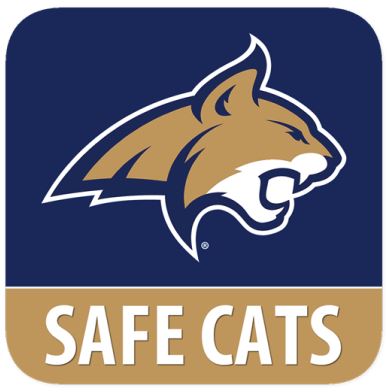Crime Statistics
Under the Jeanne Clery Act, Montana Sate University-Bozeman is required to report annual crime statistics showing reported occurrences of specific types of crime for the benefit of current/prospective students and employees.
Click on the following link to view Clery crime statistics for individual universities and to compare the crime statistics of multiple universities: http://ope.ed.gov/security/
Data for Sex Offenses were also reported anonymously to a Victim’s Advocacy Center for these reporting years and are included in these totals. A vast majority of Non-forcible Sex Offenses are acquaintance assaults. Montana State University’s strong victims’ assistance resources and public education programs on women’s safety encourages reporting and reflects sensitivity and trust in campus services, not a higher incident of assaults.
Statistics pertaining to referrals for disciplinary action reflect those incidents of alcohol, drugs, and weapons violations that were referred to the Dean of Students, Director of Residence Life, or the Greek Leadership for student conduct review and adjudication.
Definitions
On-Campus is defined as “Any building or property owned or controlled by an institution of higher education within the same reasonably contiguous geographic area of the institution and used by the institution in direct support of, or in a manner related to, the institution’s educational purposes, including residence halls; and property within the same reasonably contiguous geographic area of the institution that is owned by the institution but controlled by another person, is frequently used by students, and supports institutional purposes (such as a food or other retail vendor).”
Non-Campus building or property is defined as “Any building or property owned or controlled by a student organization recognized by the institution; and any building or property (other than a branch campus) owned or controlled by an institution of higher education that is used in direct support of, or in relation to, the institution’s educational purposes, is frequently used by students, and is not within the same reasonably contiguous geographic area of the institution.”
Public Property is defined as “All public property, including thoroughfares, streets, sidewalks, and parking facilities, that is within the campus, or immediately adjacent to and accessible from the campus.”
These are the DEFINITIONS OF CRIMINAL OFFENSES as outlined by the U.S. Department of Justice, FBI National Incident-Based Reporting System:
- Murder & Manslaughter: The willful (non-negligent) killing of one human being by another
- Sex Offenses - Any sexual act directed against another person, without the consent of the victim, including instances where the victim is incapable of giving consent. This includes rape, sodomy, sexual assault with an object, fondling, incest, and statutory rape.
- Robbery: The taking, or attempted taking, of anything of value from one person by another, in which the offender uses force or the threat of violence.
- Aggravated Assault: An attack by one person upon another, in which the offender uses or displays a weapon in a threatening manner or the victim suffers severe injury involving apparent broken bones, loss of teeth, possible internal injury, severe laceration, or loss of consciousness.
- Burglary: The unlawful entry into a building or other structure with the intent to commit a felony or a theft.
- Motor-Vehicle Theft: The theft of a motor vehicle, including automobiles, trucks, motorcycles, and mopeds.
- Arson: The willful or malicious burning or attempt to burn, with or without intent to defraud, a dwelling house, public building, motor vehicle, or aircraft, personal property of another, etc.
- Dating Violence: Violence committed by a person who is or has been in a social relationship of a romantic or intimate nature with the victim.
- Domestic Violence - Includes felony of misdemeanor crimes of violence committed by a current or former spouse of the victim, by a person sharing a child, or by any other person against an adult or youth victim who is protected from that persons acts under the domestic or family violence laws of the jurisdiction in which the crime of violence occurred.
- Stalking: A course of conduct directed at a specific person that would cause a reasonable person to fear for her, his, or others' safety, or to suffer substantial emotional distress.
- Liquor-Law Violations: The violation of laws prohibiting the manufacture, sale, purchase, transportation, possession, or use of alcoholic beverages. Does not include driving under the influence or drunkenness violations.
- Drug-Law Violations: The violation of laws prohibiting the production, distribution, and/or use of certain controlled substances and the equipment needed to produce or use them.
- Weapons-Law Violations: The violation of laws prohibiting the manufacture, sale, purchase, transportation, possession, concealment, or use of firearms, knives, explosives, or other deadly weapons.

